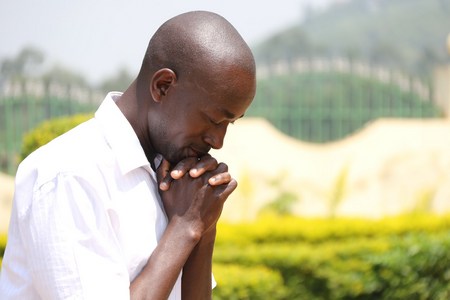Brethren, Pray For Us

To some, the idea of praying to God is useless, fruitless, and nonsensical. Many do not believe that God exists, and therefore think that prayer has no real value. Instead, some might look at prayer as a “crutch” on which weak people lean. Their idea is that prayer really only helps to pacify the mental state of those who believe. I am grateful that I learned the truth about prayer a long time ago. Prayer is a powerful and useful tool in the life of a Christian!
Near the end of his letter to the church of the Thessalonians, Paul requested something from that congregation. He simply wrote, “Brethren, pray for us” (1 Thess. 5:25). There is no specificity as to what Paul was hoping to gain from the prayers of his brothers, but rather he simply desired that they remembered him and others in prayer. In another letter though, he would request that those same brethren, “…pray for us, that the word of the Lord may have free course, and be glorified, even as it is with you: And that we may be delivered from unreasonable and wicked men: for all men have not faith” (2 Thess. 3:1-2). Does that sound familiar to many of us? How many times have we wanted to know that our brethren were praying for us in similar situations? No doubt it gave us strength and reassurance that we could endure faithfully to our Lord.
To support our trust in praying, consider what James wrote long ago. “Confess your faults one to another, and pray one for another, that ye may be healed. The effectual fervent prayer of a righteous man availeth much. Elias was a man subject to like passions as we are, and he prayed earnestly that it might not rain: and it rained not on the earth by the space of three years and six months. And he prayed again, and the heaven gave rain, and the earth brought forth her fruit” (James 5:16-18). Please notice that James was very detailed in the descriptions that he used. First of all, the prayer mentioned is uttered by “a righteous man”. The only ones that have access to the Father in prayer are those that are children of God. This truth is understood when a person reads, “Blessed be the God and Father of our Lord Jesus Christ, who hath blessed us with all spiritual blessings in heavenly places in Christ” (Eph. 1:3). The fact that prayer is a spiritual blessing should be accepted. Therefore, prayer is only for those “in Christ”. In order to get “into Christ”, the penitent one that believes Jesus is the Son of God must confess his faith and be baptized “into Christ” to put on Christ (John 8:24; Acts 17:30; Rom. 10:9-10; Gal. 3:26-29). Once a child of God, then one can enjoy the privilege of prayer. This truth is further taught in First Peter chapter three. Peter wrote, “For the eyes of the Lord are over the righteous, and his ears are open unto their prayers: but the face of the Lord is against them that do evil” (1 Pet. 3:12).
James also indicated that prayer should be “effectual” and “fervent”. We should sincerely care for the ones for which we pray. We should not become “robotic” and “emotionless” in our prayers. If we are praying for someone that is hurting, then we should actually care about that person’s situation in life. Also, we should not pray flippantly and passively. Jesus is the great example of a person who prayed effectually and fervently. “And he came out, and went, as he was wont, to the mount of Olives; and his disciples also followed him. And when he was at the place, he said unto them, Pray that ye enter not into temptation. And he was withdrawn from them about a stone’s cast, and kneeled down, and prayed, Saying, Father, if thou be willing, remove this cup from me: nevertheless not my will, but thine, be done. And there appeared an angel unto him from heaven, strengthening him. And being in an agony he prayed more earnestly: and his sweat was as it were great drops of blood falling down to the ground” (Luke 22:39-44). Have we ever prayed with such emotion and seriousness?
Although there are scoffers and those that ridicule, Christians should be grateful for the blessing of prayer. In a letter to Timothy, Paul wrote, “I exhort therefore, that, first of all, supplications, prayers, intercessions, and giving of thanks, be made for all men; For kings, and for all that are in authority; that we may lead a quiet and peaceable life in all godliness and honesty. For this is good and acceptable in the sight of God our Saviour” (1 Tim. 2:1-3). May the children of God continue to be known as prayerful people! So, as Paul requested years ago, “Brethren, pray for us”.
~ Corey Barnette

